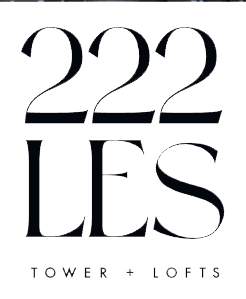Rental fraud 101: How to keep yourself and your money safe

Photo via Pixabay
January is a busy month for renters across the U.S., described by one broker as the “oasis month” in an otherwise dead stretch between October and the spring. People make big life-changing decisions at the New Year, which often means moving – plus there’s the backlog of renters who put off sorting their living situation over the holiday season who are all entering the market at once in the first week of January.
New York’s rental market is estimated to be worth over $700 million in rent and over $44 million in deposits in January alone. With so much money changing hands, it means renters are an attractive target for scammers and fraudsters. Thankfully, rental fraud is rare, but a little knowledge goes a long way. So if you’re entering the rental market after the holidays, here are three things you can do to keep yourself (and your money) safe.
 Photo © Daxiao Productions – Fotolio
Photo © Daxiao Productions – Fotolio
Use a reputable site
It’s not just about how you find your next living situation, it’s about where you look. Sites like Craigslist may be appealing for the sheer number of listings they have, but unless they put serious resources into moderating those listings it means the responsibility for knowing what you’re getting into is entirely yours.
Services that specialize in rentals should have measures in place to do most of that work for you. At sites such as SpareRoom and CityRealty, for instance, there are full-time teams of moderators who check every single listing to keep an eye out for anything suspicious. For example, this past year, SpareRoom blocked 1,416 U.S. listings; those ads will inevitably surface on other, less safe platforms.
Know what to watch for
As with most types of scam or fraud, the essential aim is to take your money for something that either doesn’t exist, or you won’t ever get. That applies to ticket touting and fraudulent selling on sites such as eBay – it’s not confined to real estate.
There are two key types of scams we see. The first involves the advertiser requesting a money transfer via a service like Western Union, usually for a property you can’t see (for whatever seemingly convincing reason). This should be a warning sign as that makes the payment untraceable. You should only ever use these services to send money to people you know extremely well. Of course, fraudsters know this, so may ask you to transfer money to a friend to prove you have the necessary funds and send a photo of the receipt. This photo is all they’ll need to collect the cash and you’ll never see it again.
The second is more complex and harder to spot. It involves the scammer getting access to a property, usually via renting it from sites like Craigslist or Airbnb. They then show prospective tenants around who, happy they’ve met the landlord and seen the property, hand over the rent and deposit, only to find out the landlord disappears.
Wherever possible pay by credit card, as that gives you the greatest level of protection if something does go wrong, but as a general rule, never pay for a room you haven’t already seen.
Trust your instincts
Generally, if something seems too good to be true, that’s because it is. We all like a bargain but, especially in a city as expensive as New York, there aren’t that many genuine bargains. Don’t let your rush to find a room or roommate cloud your usually sound judgment. There will always be another room and another opportunity to make a wise decision.
Top tips
So how do you condense that into practical advice? Here are our top tips for staying safe when you rent.
- Use a reputable site
- Don’t use services like Western Union to send payment
- Don’t hand over cash for anything you haven’t seen
- Trust your instincts
- Pay by credit card if you can
Finally, don’t be afraid to ask for help. If you have any doubts about a deal you can contact the site you saw it on and ask them to check it out.
+++
RELATED:
- Renters’ Rights 101: Know what your landlord is responsible for
- Everything you need to know about breaking a lease in NYC
- The top 12 websites and resources for no-fee NYC rentals
- Everything you need to know about using a guarantor in NYC
 Matt Hutchinson has been Communications Director at roommate matching site SpareRoom since 2009. He joined the company in 2007 and helped grow the brand into the UK’s leading roommate site, before launching in the US in 2011.
Matt Hutchinson has been Communications Director at roommate matching site SpareRoom since 2009. He joined the company in 2007 and helped grow the brand into the UK’s leading roommate site, before launching in the US in 2011.




























